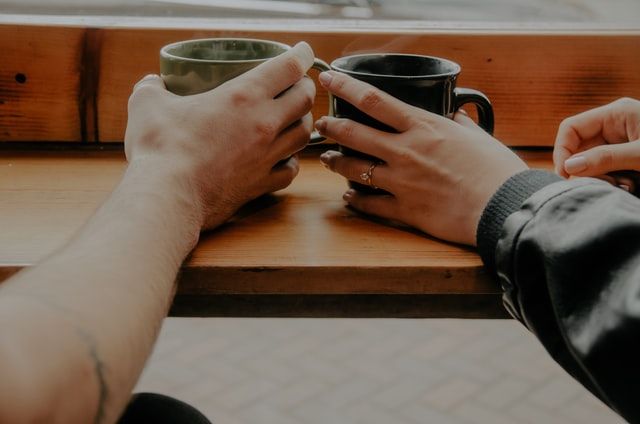Disclaimer: The thoughts expressed in this article belong solely to the author, who may or may not have had a few too many bad dates in the past.
“Aye, don’t worry about that. It’s on me.”
Newly unemployed and ready to mingle (a truly desirable combo), this response felt like it could solve all my life’s problems.
I had been talking to a man off Tinder for about a week, and we’d had pleasant, platonic conversations. When we finally decided to meet, I stated upfront that I was broke and didn’t have the money to go to a bar, so we could meet for coffee instead. The man – let’s call him B – insisted. He wanted to check out the ‘bar scene’ in my hometown. Since he offered to pay for the date, I had no reason to decline.
I had already decided what I was going to order – one tall glass of beer (the jury was still out on snacks). It’s all I could feel comfortable having someone pay for. But the date was more fun than I had anticipated, and one beer turned into many. What remained unchanged, however, were my platonic feelings towards him.
B, on the other hand, had other plans. Several attempts at physical contact were made – holding my hand, moving closer to me, ‘accidentally’ brushing his leg against mine. He paid the bill, and after an awkward kiss goodbye from him, we parted ways. He texted me immediately after, asking if we could meet again, preferably at his hotel room. I came clean and told him I wanted to be friends. He took it sportingly and asked if we could meet one last time before he left the city. We agreed to go to a cafe that incidentally also served alcohol.
That evening, he drank to his heart’s content, and pushed the bill towards me.
Who said chivalry was dead?

The politics of money
Upon conducting basic research on the subject, I found a 2017 survey conducted by Money which stated that 78% of people still believe that men should pay on the first date. This Reddit thread is a mixed bag of answers, but many men say that footing the bill on the first few dates gives the impression that they ‘aren’t broke’.
In hindsight, regardless of how far we’ve come in acknowledging gender inequalities at a cultural level, our idea of who should pay for the first date remains highly debatable. And there’s a very logical yet twisted reason behind it – the wage gap.
According to the Monster Salary Index published in 2019, women in India are paid 19% less than men on an average. To add to this pickle, as of 2020, women make up less than 25% of the formal workforce. But the problem is deeper than that of men having more money at their disposal.
In India, the wage gap is attributed to social conditioning that begins early. When the education of boys is prioritised over girls, and when girls are raised to be soft and maternal, most of us grow up believing that our careers are secondary. When children are raised in households where men have the final say in financial matters and women simply do not engage with money, it is inevitable for men to grow up believing in gender roles.
I bring the bread. She raises my progeny.
Because women are expected to give up their careers for marriage and children, men are pressured to provide. This becomes a marker of their masculinity, which they are expected to flaunt on dates.
I pay on the date. She gives me sex.
For boys who grow up in such patriarchal settings, it is easy to believe that women owe them something if they pull out the big bucks. This isn’t to say that all men believe this, but gendered expectations have the ability to affect our sense of entitlement.
That is what, I presume, happened with B.
What’s the solution?
We asked women following Kool Kanya this question recently, and their responses were as complicated and interesting as expected.
Some said that going dutch was the answer; others said that the person who initiates the date should pay.
Interestingly enough, when I posed this question to the men on my Instagram, a majority of them said they would prefer splitting the bill.
Some went on to say that while they wouldn’t mind footing the bill, not offering to go dutch implies a certain passivity in women that they do not find attractive.
The opinions on this question are as many as there are people. Another school of thought suggests that men should pay on the first date because of the existing wage gap and other structural inequalities that make women less rich (the pink tax, the fat tax, cultural expectations of them putting in more work to look more presentable). And there are no wrong answers.
But after my experience with B, I decided that I would always go dutch on the first date, as it neutralises the power between the two people involved.
Money often tips the scale in someone’s favour, so removing it from the equation completely would prevent it.
The answer to ‘who pays on the first date’ can be anything, as long as one doesn’t feel like they are indebted to the other person in any way. For women, this can be a way to reclaim their power in an unfavourable situation. And we love when women reclaim their power.
You’re invited! Join the Kool Kanya women-only career Community where you can network, ask questions, share your opinions, collaborate on projects, and discover new opportunities. Join now.






